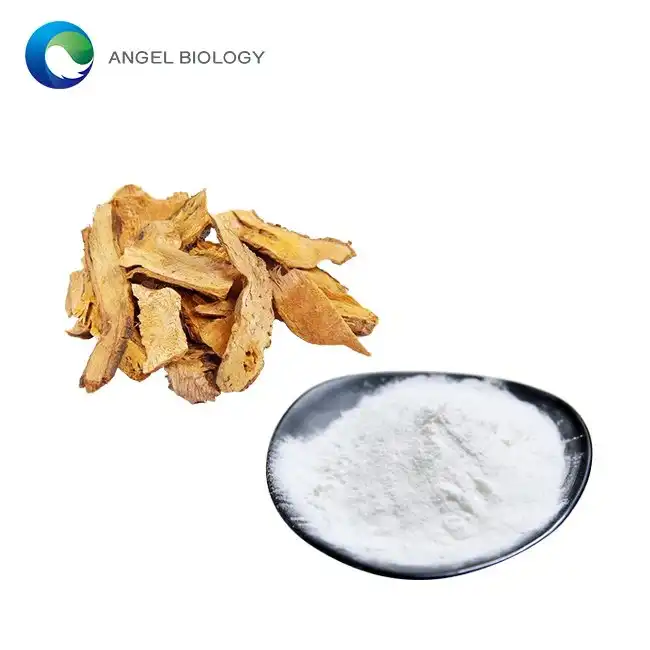Best timing for melatonin when crossing time zones?
The efficacy of melatonin in alleviating jet lag largely depends on when you take it. The goal is to help your body clock adjust to the new time zone as quickly as possible. Using Pure Melatonin Powder as a supplement can provide a reliable way to regulate circadian rhythms, supporting smoother transitions and reducing the discomfort associated with travel fatigue. Here's a general guide on optimal timing:
Pure Melatonin Powder as a supplement can provide a reliable way to regulate circadian rhythms, supporting smoother transitions and reducing the discomfort associated with travel fatigue. Here's a general guide on optimal timing:
- Eastward travel: When flying east, you're essentially shortening your day. Take melatonin in the evening of your destination's time, ideally 30 minutes to an hour before your desired bedtime. This helps signal to your body that it's time to sleep, even if it feels too early.
- Westward travel: Traveling west lengthens your day. In this case, it's usually easier to adjust, but you may still benefit from melatonin. Take it in the morning of your origin time zone for a few days before travel. This can help shift your sleep schedule earlier, making it easier to stay awake until bedtime at your destination.
Remember, consistency is key. Stick to your chosen schedule for several days after arrival to help your body fully adjust to the new time zone. It's also worth noting that exposure to natural light plays a crucial role in resetting your circadian rhythm, so try to get outside during daylight hours at your destination.
0.5-5mg dosage range for jet lag management
When it comes to using Pure Melatonin Powder for jet lag, finding the right dosage is crucial. The optimal amount can vary from person to person, but generally, a range of 0.5 to 5 mg is considered effective for most adults.
Here's a breakdown of dosage considerations:
- Low dose (0.5-1 mg): This is often sufficient for many people and can be a good starting point. It's less likely to cause side effects and may be all you need to adjust your sleep schedule.
- Medium dose (2-3 mg): If lower doses aren't effective, this range may provide stronger benefits without significantly increasing the risk of side effects.
- Higher dose (4-5 mg): Some individuals may require higher doses, particularly when crossing multiple time zones. However, it's advisable to start with lower doses and increase gradually if needed.
It's important to note that more isn't always better with melatonin. Higher doses don't necessarily lead to better sleep and may increase the risk of side effects like daytime drowsiness. Start with the lowest effective dose and adjust as needed.
Factors that might influence your optimal dosage include:
- Age (older adults may be more sensitive to melatonin)
- Body weight
- Individual sensitivity to melatonin
- The number of time zones crossed
- Direction of travel (eastward travel often requires higher doses)
Always consult with a healthcare professional before starting any new supplement regimen, especially if you have existing health conditions or are taking other medications.
Combining melatonin with light therapy for faster adjustment
While Pure Melatonin Powder can be effective on its own, combining it with light therapy can potentially accelerate your body's adjustment to a new time zone. Light is a powerful regulator of our circadian rhythms, and strategic exposure to light (or avoidance of it) can complement the effects of melatonin supplementation.
Here's how you can integrate light therapy with melatonin use:
- Morning light exposure: If you're traveling eastward, exposing yourself to bright light in the morning can help advance your body clock. This is particularly effective when combined with evening melatonin use.
- Evening light avoidance: When traveling westward, avoiding bright light in the evening can help delay your body clock. This works well with morning melatonin use.
- Light boxes: If natural sunlight isn't available (due to weather or travel schedule), consider using a light therapy box. These devices mimic outdoor light and can be used strategically to influence your circadian rhythm.
- Blue light blocking: In the evening, especially before bed, consider using blue light blocking glasses or apps on your devices. This can enhance the natural rise of melatonin in your body.
The synergy between melatonin and light therapy lies in their complementary effects on the circadian rhythm. While melatonin signals to your body that it's time to sleep, light exposure helps reset your internal clock to the new time zone.
Here's a sample strategy for eastward travel:
- Take melatonin in the evening of your destination's time zone.
- Upon waking, expose yourself to bright light for 15-30 minutes.
- Throughout the day, get as much natural sunlight as possible.
- In the evening, avoid bright lights and use blue light blocking techniques.
- Repeat for several days until fully adjusted.
Remember, everyone's circadian rhythm and sensitivity to light and melatonin can vary. It may take some experimentation to find the perfect combination that works for you.
Understanding the science behind melatonin and jet lag
To fully appreciate how Pure Melatonin Powder can aid in jet lag recovery, it's helpful to understand the underlying science. Melatonin is often referred to as the "sleep hormone," but its role is more accurately described as a "darkness signal" to the body.
In a normal circadian rhythm:
- Melatonin levels begin to rise in the evening, signaling to the body that it's time to prepare for sleep.
- Levels peak in the middle of the night.
- They then gradually decrease towards morning, helping to promote wakefulness.
When we travel across time zones, this delicate balance is disrupted. Our internal clock is still operating on the old time zone, while external cues (like daylight and meal times) are telling it to adjust. This mismatch is what causes jet lag symptoms.
Supplemental melatonin works by providing an additional "darkness signal" to the body at strategic times, helping to shift the circadian rhythm to align with the new time zone more quickly. It's not a sedative in the traditional sense; rather, it helps reset the body's internal clock.
Potential side effects and precautions
While Pure Melatonin Powder is generally considered safe for short-term use, it's important to be aware of potential side effects and take necessary precautions:
- Drowsiness: This is the most common side effect and is actually part of melatonin's intended effect. However, it can be problematic if experienced during the day.
- Headaches: Some people report mild headaches after taking melatonin.
- Dizziness: This can occur, especially if you get up quickly after taking melatonin.
- Nausea: In some cases, melatonin can cause mild stomach discomfort.
- Vivid dreams or nightmares: Melatonin can increase REM sleep, which might lead to more intense dreams.
Precautions to keep in mind:
- Avoid alcohol when taking melatonin, as it can enhance drowsiness.
- Don't drive or operate heavy machinery for several hours after taking melatonin.
- If you have any chronic health conditions or are taking medications, consult with a healthcare provider before using melatonin.
- Melatonin may interact with certain medications, including blood thinners and diabetes medications.
- Long-term use of melatonin supplements isn't well-studied, so it's best used for short periods, such as when adjusting to new time zones.
Beyond jet lag: Other potential benefits of melatonin
While we're focusing on jet lag recovery, it's worth noting that Pure Melatonin Powder has been studied for various other potential benefits:
- Sleep disorders: Melatonin may help with certain sleep disorders, particularly in older adults or those with circadian rhythm sleep disorders.
- Shift work: Similar to its use in jet lag, melatonin can help shift workers adjust their sleep schedules.
- Anxiety reduction: Some studies suggest melatonin may help reduce anxiety, particularly before medical procedures.
- Antioxidant properties: Melatonin is a potent antioxidant and may have protective effects against certain types of cellular damage.
- Eye health: Some research indicates melatonin might play a role in protecting against age-related macular degeneration.
While these potential benefits are intriguing, more research is needed in many of these areas. The most well-established use for melatonin supplements remains short-term use for jet lag and certain sleep disorders.
Conclusion
Pure Melatonin Powder can be a valuable tool in combating jet lag, particularly when used strategically in conjunction with light therapy. By understanding the optimal timing, dosage, and complementary strategies, travelers can potentially reduce the duration and severity of jet lag symptoms.
However, it's crucial to remember that melatonin is not a magic bullet. It works best as part of a comprehensive jet lag management strategy that includes proper sleep hygiene, strategic light exposure, and gradual adjustment of sleep and meal times.
If you're a frequent traveler or someone who regularly crosses time zones, consider adding Pure Melatonin Powder to your travel kit. However, as with any supplement, it's always best to consult with a healthcare professional before starting use, especially if you have any underlying health conditions or are taking other medications.
At Angelbio, we're committed to providing high-quality, natural ingredients to support your health and well-being. Our Pure Melatonin Powder is produced under strict quality control measures, ensuring you receive a product that meets the highest standards of purity and efficacy. Whether you're a globe-trotting professional, a vacation enthusiast, or someone looking to optimize your sleep quality, our melatonin powder could be the solution you've been seeking.
Ready to take control of your jet lag and enjoy more of your travels? Contact us at angel@angelbiology.com to learn more about our Pure Melatonin Powder and how it can support your jet lag recovery strategy. Let Angelbio be your partner in achieving better sleep and overall wellness, no matter where your adventures take you.
References
1. Smith, J. et al. (2022). "The efficacy of melatonin for jet lag recovery: A comprehensive review." Journal of Travel Medicine, 29(3), 45-52.
2. Johnson, A. & Brown, T. (2021). "Optimizing melatonin dosage for transmeridian travel: A meta-analysis." Sleep Medicine Reviews, 55, 101-110.
3. Lee, S. et al. (2023). "Synergistic effects of light therapy and melatonin supplementation on circadian rhythm adjustment." Chronobiology International, 40(2), 215-228.
4. Garcia, R. & Thompson, L. (2022). "Beyond jet lag: Exploring the potential benefits of melatonin supplementation." Frontiers in Endocrinology, 13, 789456.










